Home>Garden Essentials>Garden Plants>What Does Thyme Do For Your Body
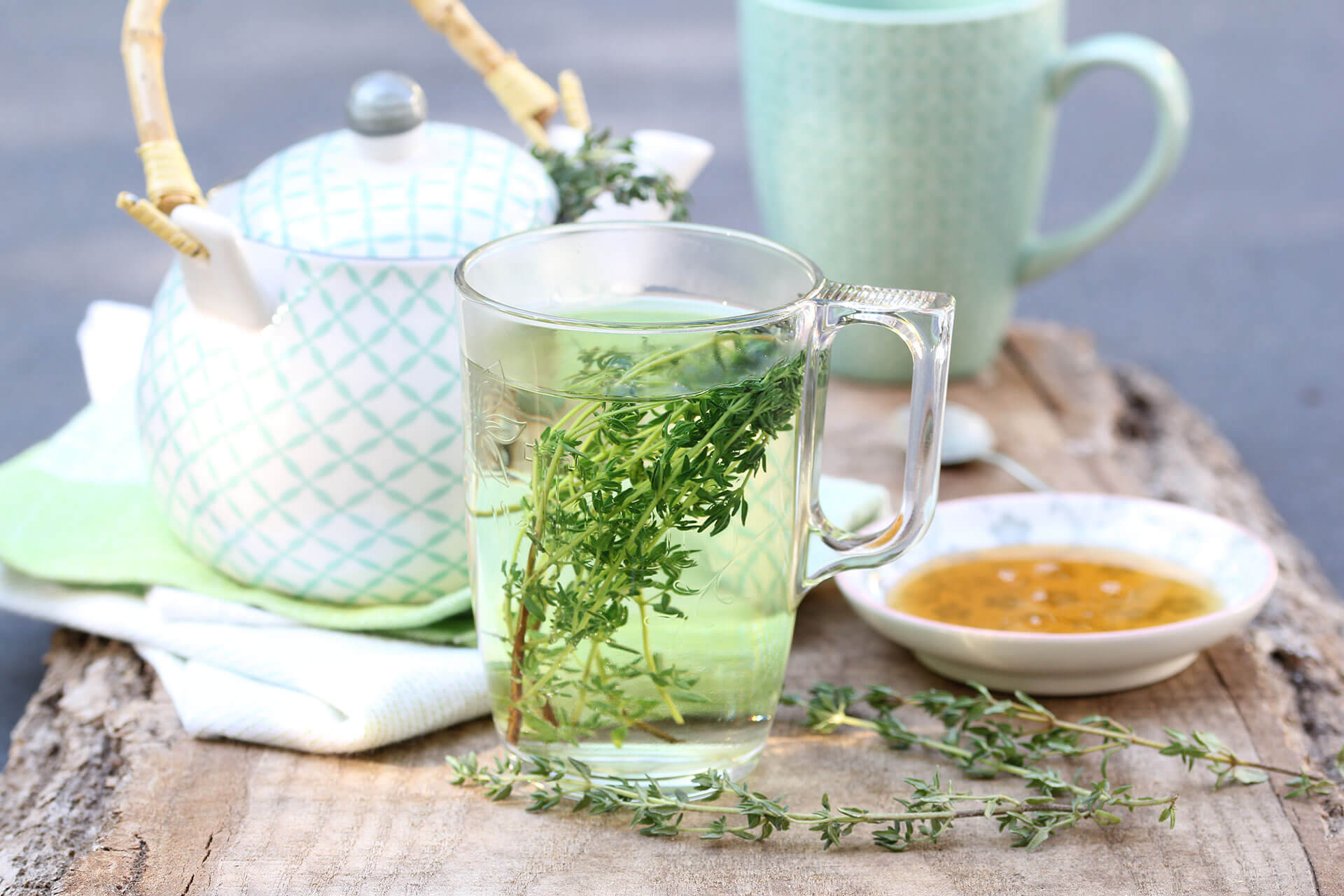

Garden Plants
What Does Thyme Do For Your Body
Modified: October 18, 2024
Discover the amazing benefits of thyme for your body. This versatile plant is packed with antioxidants and antimicrobial properties, supporting your immune system and overall health.
(Many of the links in this article redirect to a specific reviewed product. Your purchase of these products through affiliate links helps to generate commission for Storables.com, at no extra cost. Learn more)
Introduction
Welcome to the wonderful world of thyme! This powerful and versatile herb has been used for centuries for its culinary and medicinal properties. Thyme not only adds a delightful flavor to dishes, but it also offers a range of health benefits that can improve your overall well-being.
Thyme, scientifically known as Thymus vulgaris, is a small perennial herb that belongs to the mint family. It is native to the Mediterranean region and is widely cultivated around the world today. Its tiny leaves and delicate flowers release a pleasant aroma that adds depth and complexity to various cuisines.
Aside from being a staple in the kitchen, thyme has been highly regarded in traditional medicine for its therapeutic properties. This herb contains an array of beneficial compounds, including vitamins, minerals, and antioxidants, that contribute to its numerous health benefits.
In this article, we will explore the nutritional value of thyme and delve into the incredible health benefits it offers. From its antioxidant and anti-inflammatory effects to its support for respiratory and digestive health, thyme truly excels as a natural remedy. We will also discuss how to incorporate thyme into your diet and highlight some precautions to keep in mind.
So, let’s dive right in and uncover the wonders that thyme can do for your body!
Key Takeaways:
- Thyme offers a myriad of health benefits, from antioxidant and anti-inflammatory properties to supporting respiratory health, digestion, and immune function. Incorporate thyme into your diet for a flavorful and natural boost to your well-being.
- While enjoying the culinary and medicinal benefits of thyme, it’s important to be mindful of precautions, such as allergies, medication interactions, and proper essential oil usage. Consult with a healthcare professional for personalized advice on incorporating thyme responsibly into your lifestyle.
Read more: What Does A Hot Tub Do For Your Body
Overview of Thyme
Thyme is a perennial herb known for its small, fragrant leaves and delicate flowers. It is a member of the mint family and is native to the Mediterranean region. Thyme plants typically grow to about 15-30 centimeters in height and have woody stems.
There are several varieties of thyme, with common ones including English thyme, French thyme, and lemon thyme. Each variety has its unique flavor profile, ranging from earthy and slightly minty to citrusy and refreshing. Thyme is commonly used as a culinary herb to enhance the taste of various dishes, including soups, stews, roasted vegetables, and marinades.
Aside from its culinary applications, thyme has also been valued for its medicinal properties for centuries. Ancient Greeks, Egyptians, and Romans recognized its healing potential. Thyme was often used to alleviate respiratory issues, aid digestion, and treat infections.
Thyme contains several bioactive compounds that contribute to its health benefits. These include thymol, carvacrol, rosmarinic acid, and flavonoids. Thymol and carvacrol are known for their antimicrobial properties, while rosmarinic acid exhibits antioxidant and anti-inflammatory effects.
In addition to its culinary and medicinal uses, thyme has also been used in aromatherapy for its soothing and calming properties. Its pleasant scent has been known to relieve stress and promote relaxation.
With its rich history and versatile nature, thyme is truly a remarkable herb that offers both flavor and health benefits. In the next section, we will explore the nutritional value of thyme to further understand why it is considered a powerhouse herb.
Nutritional Value of Thyme
Thyme is not only a flavorful herb but also a nutritional powerhouse. While consumed in small quantities, it provides an impressive array of vitamins, minerals, and antioxidants that can contribute to your overall health.
Here is an overview of the nutritional composition of thyme:
- Vitamins: Thyme is an excellent source of vitamin C, which is known for its immune-boosting properties. It also contains vitamin A, vitamin K, and a small amount of B vitamins.
- Minerals: Thyme provides essential minerals like iron, calcium, manganese, and potassium. These minerals play crucial roles in various bodily functions, including bone health, red blood cell production, and nerve function.
- Antioxidants: Thyme is rich in antioxidants, such as rosmarinic acid and flavonoids. These compounds help protect the body against oxidative stress, reducing the risk of chronic diseases like heart disease and certain types of cancer.
- Phytonutrients: Thyme contains various phytonutrients, including thymol and carvacrol, which possess antimicrobial and antifungal properties. These compounds may contribute to the herb’s ability to combat infections and support immune health.
Furthermore, thyme is low in calories and carbohydrates, making it a suitable choice for those following a low-calorie or low-carb diet.
It is important to note that the nutritional content of thyme may vary slightly depending on the variety, growing conditions, and processing methods. Nonetheless, incorporating thyme into your diet can be an excellent way to boost your nutrient intake and take advantage of its health-promoting properties.
In the next section, we will delve into the remarkable health benefits that thyme offers.
Health Benefits of Thyme
Thyme offers a wide range of health benefits, thanks to its rich nutritional profile and bioactive compounds. Let’s explore some of the impressive ways thyme can positively impact your well-being:
- Antioxidant Properties: Thyme is packed with antioxidants that help protect the body from free radicals, harmful molecules that can lead to oxidative stress and damage cells. These antioxidants, such as rosmarinic acid and flavonoids, have been linked to reduced inflammation and a lower risk of chronic diseases, including heart disease and certain types of cancer.
- Anti-inflammatory Effects: The compounds found in thyme, such as rosmarinic acid and thymol, exhibit anti-inflammatory properties. They can help reduce inflammation in the body, which is linked to various chronic conditions like arthritis, cardiovascular disease, and inflammatory bowel disease.
- Respiratory Health Support: Thyme has long been used to support respiratory health. It can help relieve coughs, congestion, and chest congestion. The essential oils present in thyme, particularly thymol, possess expectorant properties that help loosen mucus and phlegm, making it easier to expel from the respiratory tract.
- Digestive Aid: Thyme has been used traditionally to aid digestion. It can stimulate the production of digestive enzymes, which facilitates the breakdown of food and absorption of nutrients. Thyme also has carminative properties, meaning it can help alleviate gas, bloating, and indigestion.
- Antibacterial and Antifungal Properties: Thyme contains compounds like thymol and carvacrol, which have strong antimicrobial properties. They can help combat bacteria, fungi, and even some drug-resistant strains. Thyme essential oil is often used as a natural disinfectant for cleaning and sanitizing purposes.
- Immune System Boost: Thyme’s high vitamin C content and immune-boosting antioxidants contribute to its ability to enhance the immune system. Vitamin C stimulates the production of white blood cells, which are vital for a healthy immune response. The antioxidants in thyme also help reduce oxidative stress and support overall immune function.
- Stress Relief: The aroma of thyme essential oil has calming and stress-relieving effects. Inhaling the scent of thyme has been associated with reduced anxiety levels and increased relaxation, making it a valuable herb for aromatherapy and relaxation practices.
- Heart Health Support: Thyme contains compounds, including polyphenols and flavonoids, that can promote heart health. These compounds may reduce blood pressure, improve cholesterol levels, and protect against oxidative stress, all of which contribute to a healthier cardiovascular system.
It’s important to note that while thyme offers many potential health benefits, it is not a replacement for medical treatment. If you have specific health concerns, it’s best to consult with a healthcare professional.
In the next section, we will explore different ways to incorporate thyme into your diet and enjoy its health benefits.
Antioxidant Properties
Thyme is packed with antioxidants, making it a potent defender against oxidative stress and cellular damage. Antioxidants are compounds that neutralize harmful free radicals in the body, which are unstable molecules that can lead to chronic diseases and premature aging.
One of the main antioxidants found in thyme is rosmarinic acid. This powerful compound has been shown to have anti-inflammatory and antimicrobial properties, as well as the ability to scavenge free radicals and protect against oxidative stress.
Research suggests that the antioxidants in thyme may play a role in reducing inflammation, supporting healthy aging, and even lowering the risk of certain diseases, such as heart disease and cancer.
The antioxidant capacity of thyme can be attributed to its flavonoid content as well. Flavonoids are plant compounds that have been associated with a wide range of health benefits, including reduced oxidative stress, improved heart health, and enhanced cognitive function.
To maximize the antioxidant benefits of thyme, it is best to consume it in its fresh or dried form. Fresh thyme leaves can be used as a garnish or added to salads, while dried thyme can be used as a seasoning in various dishes.
Adding thyme to your meals not only enhances the flavor but also boosts the antioxidant content of your diet. So, next time you’re cooking, sprinkle some thyme into your recipes and reap the benefits of its potent antioxidants.
In the next section, we will explore the anti-inflammatory effects of thyme.
Read more: What Air Conditioning Does To Your Body
Anti-inflammatory Effects
Thyme has been recognized for its anti-inflammatory properties, which can help reduce inflammation in the body. Chronic inflammation is linked to various health issues, including arthritis, cardiovascular disease, and certain types of cancer.
The anti-inflammatory effects of thyme can be attributed to its key components, such as rosmarinic acid and thymol. These compounds have been shown to inhibit the production of inflammatory enzymes and cytokines, which are involved in the inflammatory response.
Studies have demonstrated that thyme and its compounds can help alleviate symptoms associated with inflammatory conditions. For example, thyme extract has been found to reduce pain and swelling in animal models of arthritis.
Furthermore, the anti-inflammatory properties of thyme may extend to the digestive system. Thyme has been traditionally used as a remedy for digestive disorders such as indigestion, bloating, and irritable bowel syndrome (IBS). The anti-inflammatory effects of thyme may help calm the digestive tract, reduce inflammation, and alleviate symptoms of these conditions.
It’s worth mentioning that while thyme can provide some relief from inflammation, it is important to address the underlying causes of chronic inflammation through a balanced diet and a healthy lifestyle. Incorporating thyme into your meals can be a flavorful way to support your body’s natural inflammatory response.
From its antioxidant properties to its anti-inflammatory effects, thyme continues to impress as a potent herb with numerous health benefits. In the next section, we will explore how thyme can support respiratory health.
Respiratory Health Support
Thyme has a long history of use in supporting respiratory health. Its aromatic compounds, particularly thymol, have been found to have beneficial effects on the respiratory system.
Thyme is often used as a natural remedy for coughs, congestion, and respiratory infections. The essential oil of thyme, when inhaled, helps to loosen mucus and phlegm, making it easier to expel from the airways. This expectorant action can provide relief from respiratory symptoms and improve breathing.
In addition to its expectorant properties, thyme also exhibits antimicrobial effects. Its compounds, including thymol and carvacrol, have been found to have antibacterial and antifungal properties. This makes thyme an effective natural remedy for treating respiratory infections caused by bacteria or fungi.
Research has shown that thyme extract can inhibit the growth of respiratory pathogens, including bacteria like Streptococcus pneumoniae and Staphylococcus aureus. These findings suggest that thyme may help prevent or alleviate respiratory infections.
Furthermore, the anti-inflammatory properties of thyme can also benefit the respiratory system. Inflammation in the airways can contribute to conditions like asthma or bronchitis. Thyme’s anti-inflammatory effects may help reduce inflammation in the respiratory tract, improving symptoms and promoting overall respiratory health.
To harness the respiratory health benefits of thyme, you can try brewing thyme tea or inhaling thyme essential oil. Thyme tea can be made by steeping fresh or dried thyme leaves in hot water for a few minutes. Inhaling the steam from a bowl of thyme-infused hot water can also be soothing for the respiratory system.
Whether you’re dealing with a cough or simply want to maintain healthy respiratory function, adding thyme to your wellness routine can provide natural and effective support.
In the next section, we will discuss how thyme can aid digestion and promote a healthy gut.
Digestive Aid
Thyme has long been used as a digestive aid due to its unique blend of compounds that promote healthy digestion.
One of the key ways thyme aids digestion is by stimulating the production of digestive enzymes. These enzymes play a vital role in breaking down food and facilitating the absorption of nutrients in the digestive tract. By enhancing enzyme activity, thyme can help optimize the digestive process.
Thyme also possesses carminative properties, meaning it can help relieve gas and bloating. It contains compounds, such as thymol and carvacrol, which have been found to relax the smooth muscles of the gastrointestinal tract, helping to reduce discomfort and improve digestion.
Furthermore, thyme may also help alleviate symptoms associated with indigestion and gastrointestinal distress. Its anti-inflammatory properties can help soothe inflammation in the digestive system, reducing discomfort and promoting overall digestive health.
To incorporate thyme as a digestive aid, you can use it as a culinary herb in your meals. Sprinkle fresh or dried thyme leaves into soups, stews, or roasted vegetables to enhance the flavor and promote healthy digestion.
For those experiencing digestive issues or seeking extra support, thyme tea can be a soothing remedy. Simply steep thyme leaves in hot water for a few minutes to prepare a fragrant and beneficial herbal tea that can help ease digestion.
As with any herbal remedy, it’s important to listen to your body and adjust the amounts and frequency of thyme consumption according to your needs. If you have a specific digestive condition or are on any medications, it’s always a good idea to consult with a healthcare professional.
In the next section, we will explore the antibacterial and antifungal properties of thyme.
Thyme is a great source of vitamins and minerals, including vitamin C and iron. It also has antimicrobial properties and may help with coughs and sore throats. Try adding it to your meals for a flavorful and health-boosting addition.
Antibacterial and Antifungal Properties
Thyme contains potent compounds that exhibit strong antibacterial and antifungal properties. These properties make thyme an effective natural remedy for fighting infections caused by bacteria and fungi.
The primary bioactive compounds responsible for thyme’s antimicrobial effects are thymol and carvacrol. These compounds have been extensively studied for their ability to inhibit the growth of various bacteria and fungi.
Thyme’s antibacterial properties have been found to be effective against common pathogens, including Staphylococcus aureus and Escherichia coli. These bacteria are known to cause infections in different parts of the body and can be resistant to certain antibiotics. Thyme’s natural antibacterial properties provide an alternative means to combat these harmful microorganisms.
In addition to its antibacterial effects, thyme also demonstrates antifungal properties. It has been found to be effective against fungal infections caused by Candida species and other common fungal pathogens. Thyme’s antifungal activity can help combat fungal overgrowth, particularly in areas like the skin or mucous membranes.
One popular application of thyme’s antimicrobial properties is the use of thyme essential oil as a natural disinfectant. It can be used to clean surfaces, treat minor wounds, and even as a natural mouthwash to combat oral bacteria.
Keep in mind that while thyme can be beneficial in inhibiting the growth of certain bacteria and fungi, it is not a substitute for medical treatment. If you suspect an infection or have a pre-existing condition, it’s important to consult with a healthcare professional for an accurate diagnosis and appropriate treatment.
Incorporating thyme into your meals, or using thyme essential oil as a natural disinfectant, can provide an added layer of defense against harmful microorganisms.
In the next section, we will explore how thyme can boost the immune system.
Read more: What To Do With Extra Thyme
Immune System Boost
Thyme is renowned for its immune-boosting properties, making it a valuable herb for supporting overall health and well-being.
One of the key reasons thyme is beneficial for the immune system is its high content of vitamin C. Vitamin C is a powerful antioxidant that helps strengthen the immune system by promoting the production of white blood cells, which are essential for fighting off infections and diseases.
In addition to vitamin C, thyme contains other immune-boosting antioxidants, such as rosmarinic acid and flavonoids. These compounds help reduce oxidative stress and support optimal immune function.
Research suggests that thyme’s immune-boosting effects extend beyond its antioxidant content. Thyme contains bioactive compounds like thymol and carvacrol, which have been found to possess antimicrobial and antiviral properties. These compounds help protect against pathogens and enhance the body’s natural defense mechanisms.
Thyme’s ability to enhance immune function is particularly beneficial during the cold and flu season, when our bodies are more susceptible to viral infections. Regular consumption of thyme can help strengthen the immune system, making it more resilient against common illnesses.
To reap the immune-boosting benefits of thyme, incorporate it into your daily diet. Add fresh thyme leaves to your salads, soups, stews, or marinades. You can also enjoy thyme-infused herbal teas to give your immune system an extra boost.
Remember that maintaining a healthy lifestyle, including a balanced diet, regular exercise, adequate sleep, and stress management, is crucial for supporting a robust immune system. Thyme can be a wonderful addition to your overall wellness routine.
In the next section, we will explore the stress-relieving properties of thyme.
Stress Relief
Thyme is not only a flavorful herb but also a natural stress reliever. Its pleasant aroma and soothing properties make it an excellent choice for calming the mind and promoting relaxation.
The scent of thyme has been known to have a positive impact on our mood and mental well-being. Inhaling the aroma of thyme essential oil can help reduce anxiety levels and induce a sense of tranquility. It has been used in aromatherapy to alleviate stress and promote a sense of peace and relaxation.
Thyme contains compounds like linalool, which has been found to have sedative effects. These compounds can help soothe the nervous system, reduce restlessness, and promote better sleep quality.
Reducing stress is essential for overall health, as chronic stress can lead to a variety of physical and mental health issues. Incorporating thyme into your self-care routine, either through aromatherapy or by enjoying thyme-infused teas, can provide a natural and pleasant way to relax and unwind.
In addition to its aroma, thyme’s antioxidant and anti-inflammatory properties may also contribute to stress relief. Oxidative stress and inflammation have been associated with increased stress levels. By reducing oxidative stress and inflammation in the body, thyme can help mitigate the physiological effects of stress.
Whether it’s through diffusing thyme essential oil, enjoying a cup of thyme tea, or incorporating thyme into your meals, take some time to savor the calming properties of this remarkable herb.
In the next section, we will explore how thyme can support heart health.
Heart Health Support
Thyme offers valuable support for heart health, thanks to its array of beneficial compounds and its impact on several key factors related to cardiovascular well-being.
Thyme contains polyphenols and flavonoids, which are powerful antioxidants that help protect against oxidative stress. Chronic oxidative stress can contribute to the development of cardiovascular diseases by damaging blood vessels and promoting inflammation.
Studies have shown that the antioxidants in thyme can help lower blood pressure, a significant risk factor for heart disease. Thyme’s compounds may help relax blood vessels, improve blood flow, and reduce resistance in the arteries, leading to better cardiovascular health.
Furthermore, thyme’s anti-inflammatory properties can also contribute to heart health. Inflammation plays a role in the development of atherosclerosis, a condition characterized by the buildup of plaque in the arteries. By reducing inflammation, thyme may help prevent the progression of this disease.
Thyme is also low in sodium, making it a suitable herb for those watching their sodium intake. High sodium consumption can contribute to high blood pressure and increase the risk of heart disease, so using thyme as a flavorful alternative to salt can be beneficial for heart health.
Additionally, thyme is rich in vitamins and minerals, including potassium, which has been associated with lower blood pressure levels. Potassium helps regulate fluid balance and counteracts the effects of sodium, further supporting cardiovascular health.
To incorporate thyme into a heart-healthy diet, use it as a seasoning in place of high-sodium seasonings or salt. Add it to roasted vegetables, homemade dressings, or marinades for a burst of flavor and heart-protective benefits.
It is important to note that while thyme can be a beneficial addition to a heart-healthy lifestyle, it is not a substitute for other essential lifestyle factors, such as regular exercise, a balanced diet, and not smoking.
Incorporating thyme into your meals can be a delicious way to support your heart health and enhance the flavors of your favorite dishes.
Now that we’ve explored the amazing health benefits of thyme, let’s move on to the next section to discover how to incorporate thyme into your diet.
How to Incorporate Thyme into Your Diet
There are many creative and delicious ways to incorporate thyme into your diet and reap its numerous health benefits. Here are a few ideas to get you started:
- Cooking: Thyme is a versatile herb that pairs well with a variety of dishes. It can be added to soups, stews, sauces, and marinades to impart a delightful flavor. Simply strip the leaves from the stems and add them during the cooking process. The heat will release the aromatic oils and infuse your dishes with thyme’s unique essence.
- Homemade Seasoning: Create a homemade dried thyme seasoning blend by combining dried thyme with other herbs like oregano, rosemary, and basil. Use this herb blend to season roasted vegetables, grilled meats, or even popcorn for an extra burst of flavor.
- Infused Oil or Vinegar: Make your own infused oils or vinegar by adding fresh thyme sprigs to a bottle of olive oil or vinegar. Allow the flavors to infuse for a few weeks before using them in dressings, marinades, or as a drizzle over salads or roasted vegetables.
- Herbal Tea: Brew a soothing cup of thyme tea by steeping fresh or dried thyme leaves in hot water for a few minutes. You can enjoy it plain or add a splash of lemon juice and honey for extra flavor. Thyme tea has a calming and refreshing quality, perfect for relaxation or as a soothing remedy for a sore throat or cough.
- Herb Butter: Make your own herb butter by blending softened butter with chopped fresh thyme leaves. This herb-infused butter can be spread on bread, melted over grilled meats or vegetables, or used to add a flavorful twist to pasta dishes.
- Herb-Infused Salt: Combine dried thyme with sea salt or kosher salt to create your own herb-infused salt. Use it as a finishing touch on your favorite dishes to enhance the flavors and add a hint of thyme.
Remember, thyme is a potent herb, so a little goes a long way. Start with smaller amounts, taste as you go, and adjust accordingly to suit your preferences.
Lastly, if you don’t have access to fresh thyme, dried thyme can be a suitable alternative. While fresh thyme offers a more intense flavor, dried thyme can still enhance your dishes with its distinctive taste and aromatics.
Now that you have some inspiration, unleash your creativity in the kitchen and discover the many delicious ways to incorporate thyme into your diet!
Next, let’s discuss some precautions to keep in mind when using thyme.
Read more: Where Do Bed Bugs Hide On Your Body
Precautions When Using Thyme
While thyme is generally safe to consume, there are a few precautions to keep in mind when using this herb:
Allergies: Some individuals may be allergic to thyme or other herbs in the mint family. If you have a known allergy to mint or other related herbs, it is best to avoid thyme or consult with a healthcare professional before using it.
Pregnancy and Nursing: Pregnant and breastfeeding women should exercise caution when using thyme medicinally or in large quantities. Thyme has been traditionally used to stimulate uterine contractions, so it’s best to avoid excessive consumption during pregnancy. As always, it’s recommended to consult with a healthcare professional before using thyme as a medicinal herb during pregnancy or while nursing.
Medication Interactions: Thyme, like many herbs, contains compounds that can interact with certain medications. If you are taking medications, especially blood thinners or medications for high blood pressure, consult with your healthcare provider to ensure there are no potential interactions with thyme or thyme supplements.
Essential Oil Safety: Thyme essential oil is highly concentrated and potent. When using essential oils, always dilute them properly and follow recommended guidelines for use. Avoid applying undiluted thyme essential oil directly to the skin, as it can cause irritation. It is also not recommended to ingest thyme essential oil without proper guidance from a qualified aromatherapist or healthcare professional.
Quality and Storage: To ensure the best quality and safety, choose organic thyme whenever possible. Store dried thyme in a cool, dry place in an airtight container to maintain its freshness and flavor. Fresh thyme can be stored in the refrigerator wrapped in a damp paper towel for up to one week.
If you have any specific health concerns or questions, it’s always best to consult with a healthcare professional or a qualified herbalist for personalized advice.
Overall, thyme is a widely enjoyed herb known for its exceptional flavor and beneficial properties. By using thyme responsibly and considering any precautionary measures, you can fully enjoy its many culinary and medicinal benefits.
Now that you are familiar with the precautions, let’s wrap up our journey into the world of thyme.
Conclusion
Thyme is truly a remarkable herb that offers a multitude of benefits for both culinary and medicinal purposes. With its rich flavor, aromatic fragrance, and impressive array of nutrients, thyme has earned its place as a staple in kitchens and medicine cabinets around the world.
From its antioxidant properties and anti-inflammatory effects to its support for respiratory health, digestion, and immune function, thyme proves to be a valuable addition to a healthy lifestyle. It can help protect against chronic diseases, alleviate symptoms of respiratory conditions, aid digestion, fight off infections, and even promote relaxation and stress relief.
Incorporating thyme into your diet is easy and enjoyable. Whether you choose to cook with it, brew a cup of thyme tea, or infuse oils and vinegars, thyme can add depth and flavor to a wide range of dishes.
It’s important to be mindful of precautions when using thyme, such as possible allergies, interactions with medications, and proper usage of essential oils. By understanding these precautions, you can safely and responsibly enjoy the benefits of thyme.
Remember, as with any herbal remedy, it’s always best to consult with a healthcare professional if you have specific health concerns or questions.
So, let thyme become your go-to herb in the kitchen and a natural ally for your well-being. Embrace its flavors, embrace its benefits, and let thyme make a difference in your life.
With its rich history, versatility, and wide-ranging health benefits, thyme continues to be a beloved herb cherished not only for its culinary delights but also for its remarkable contributions to our overall health and wellness.
Whether you’re savoring a thyme-infused dish or enjoying the calming scent of thyme essential oil, let this herb remind you of the power of nature and its ability to nourish our bodies and enhance our lives.
Frequently Asked Questions about What Does Thyme Do For Your Body
Was this page helpful?
At Storables.com, we guarantee accurate and reliable information. Our content, validated by Expert Board Contributors, is crafted following stringent Editorial Policies. We're committed to providing you with well-researched, expert-backed insights for all your informational needs.
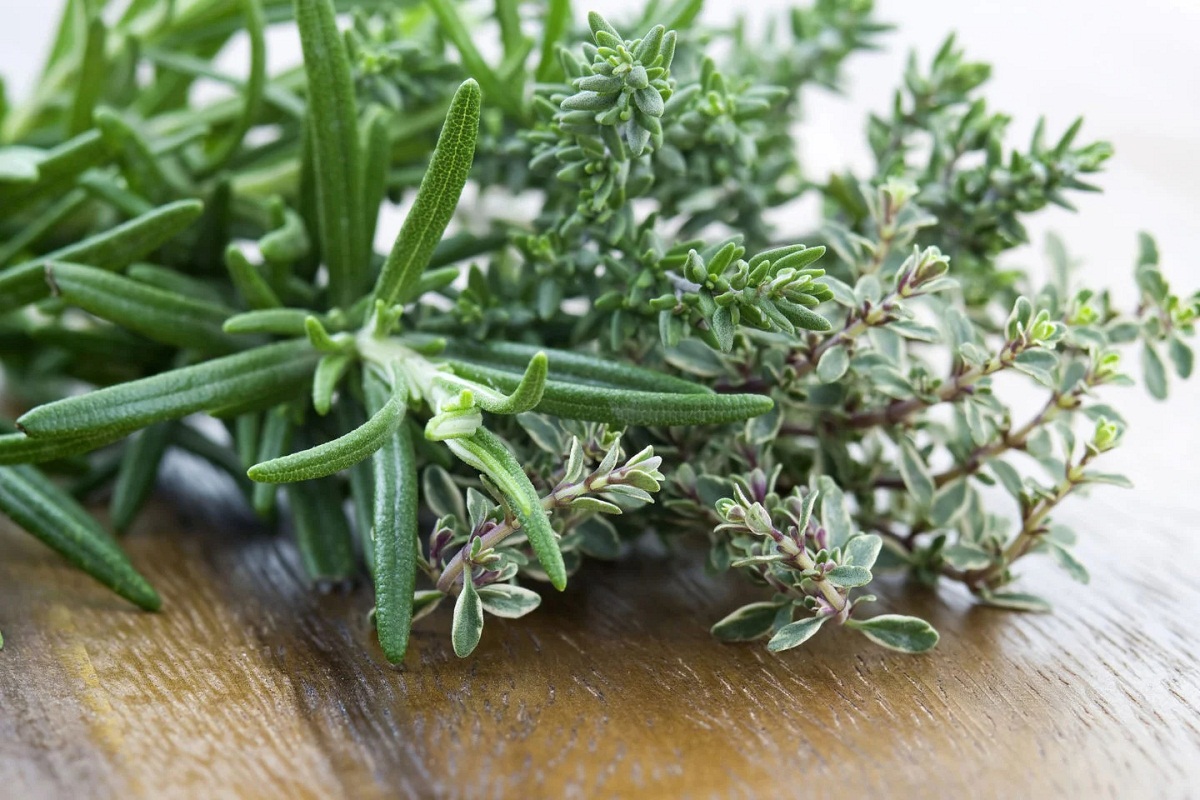

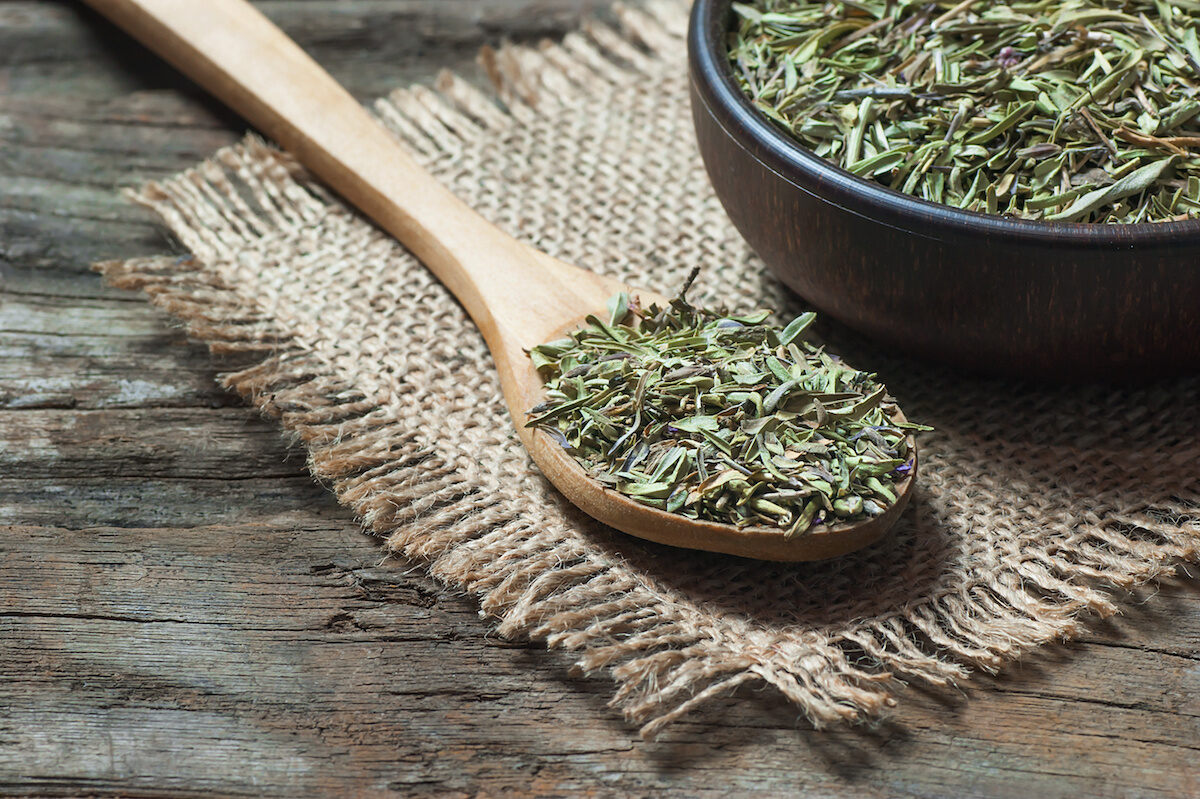

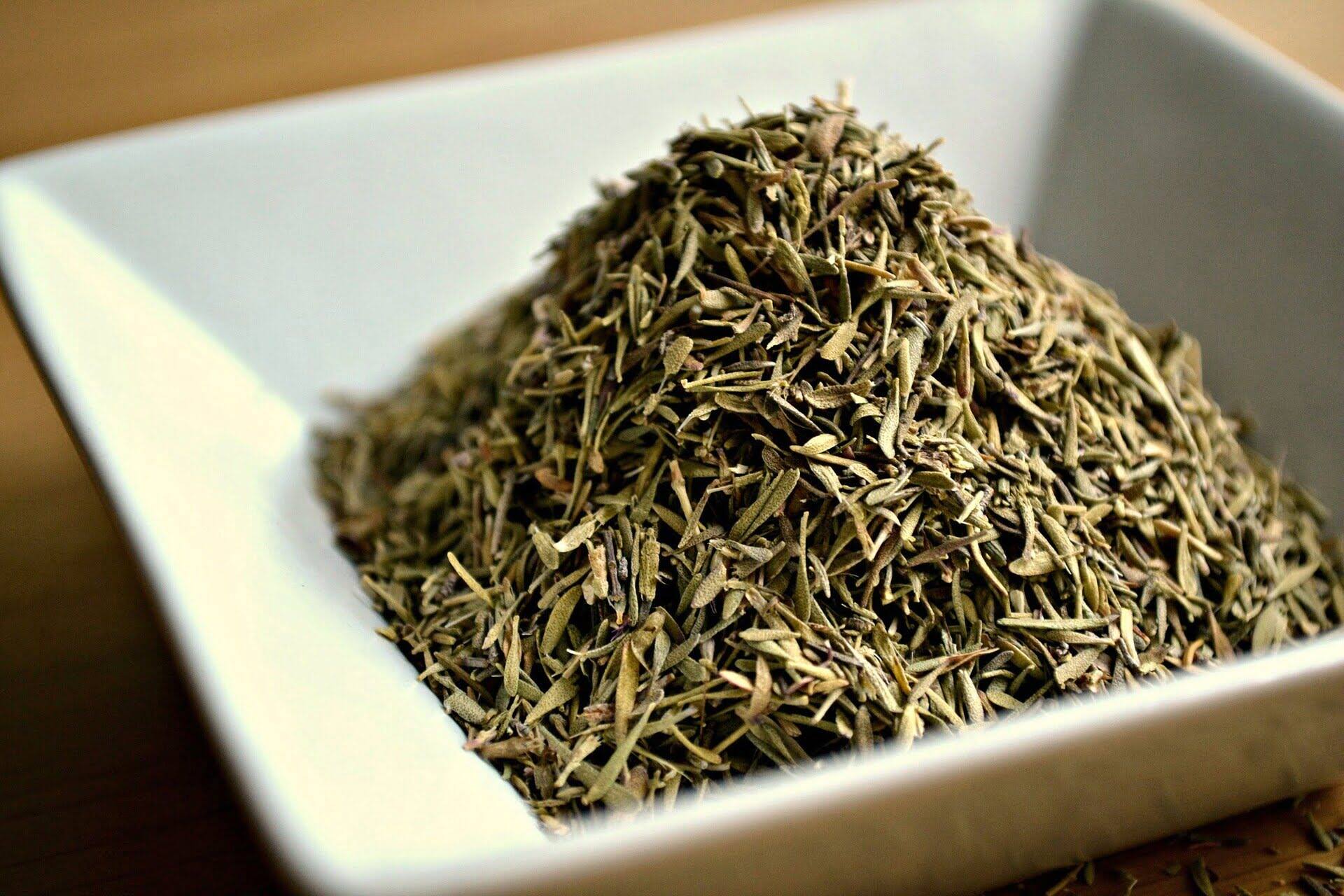






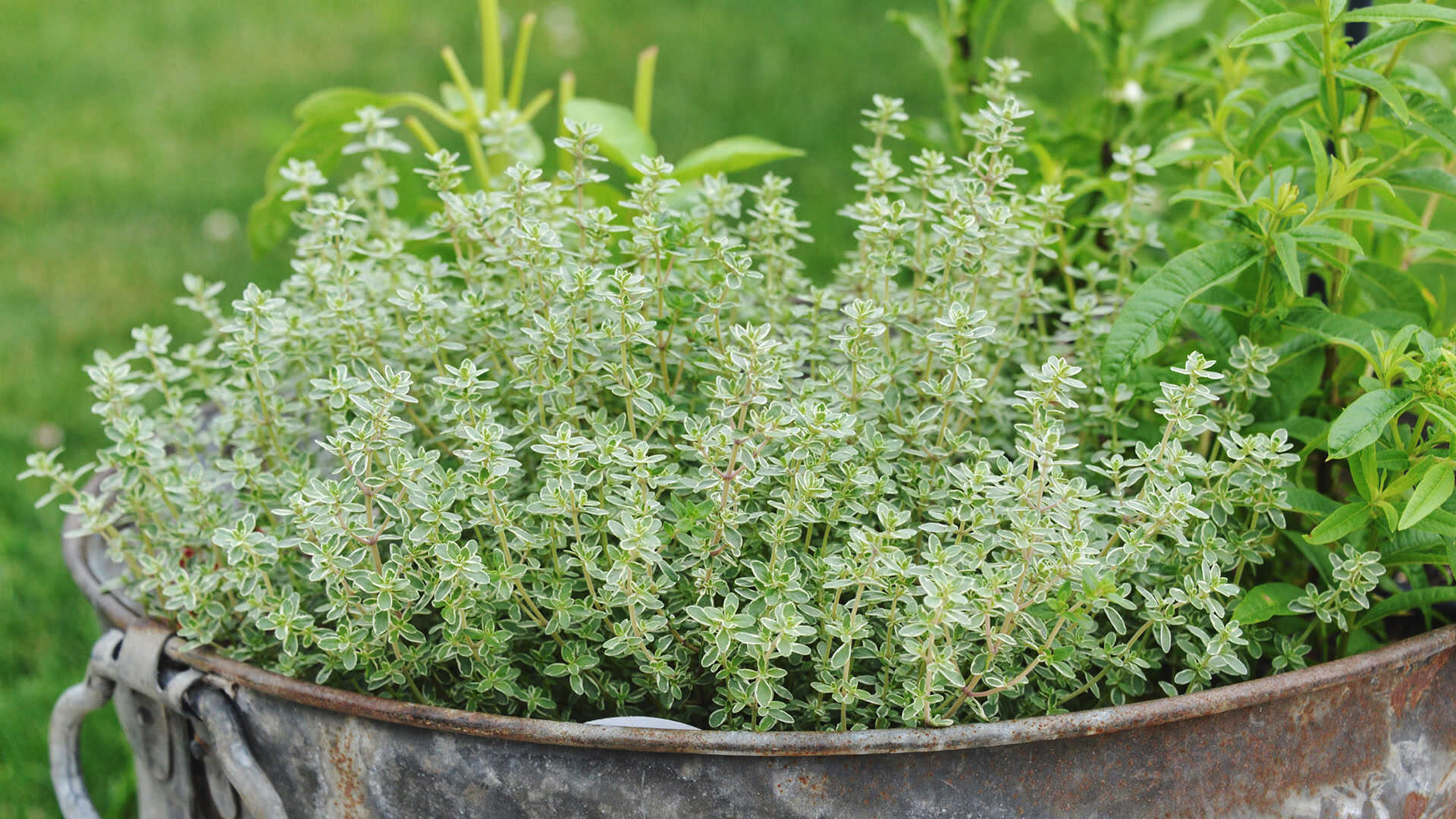

0 thoughts on “What Does Thyme Do For Your Body”